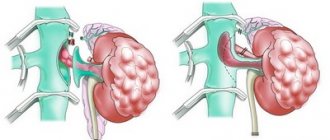Emptying of breastfed children at 4 months
A baby who is fed breast milk may have bowel movements after each feeding. This is considered the norm. When a child reaches four months of age, bowel movements may decrease to three to four times. The basis for such intestinal work lies precisely in mother’s milk. The fact is that it is saturated and rich in various vitamins and elements (lactase, lipase, etc.), which make the digestive system work well. But there are times when a four-month-old baby poops only once a day. There is no need to worry if nothing has changed in his behavior and the number of urinations has not decreased. This is a sign that almost all of his breast milk is being absorbed well and he is gaining weight well.
When they have a bowel movement, children strain and sometimes even burp. But this does not mean that there are problems with bowel movements. If his stool is soft and watery, then there is absolutely no reason to worry. The newborn grunts in this process because the abdominal muscles are not strong enough yet and it is very difficult for them to strain.
If a breastfed baby poops little, this also does not always indicate the cause of improper bowel movements. This sometimes happens when a woman has little milk, resulting in the baby eating very little. Evidence of this is low weight gain. In any case, it is better to contact your treating pediatrician.
What parents can do
The first thing parents should do is make an appointment with a pediatrician to rule out various pathologies. But you can provide first aid to the baby yourself.- If the child is straining but cannot have a bowel movement, parents are advised to bend the baby’s knees while gently pressing on the tummy or massage clockwise. This must be done every time the baby cannot have a bowel movement.
- You can also take a cotton swab, soak it in vegetable oil and gently insert it into the anus. When the baby begins to push, it is necessary to irritate the anus. This method is used in rare cases, since the intestines can get used to emptying only with such stimulation.
- If the tummy is rumbling and gases do not pass, place the baby on his stomach.
- Change the mixture and observe the emptying.
- Give plenty of fluids to drink.
- An enema is given to a child of this age in rare cases. The water in the syringe should be cool. The amount of water infused into the intestines should not exceed 70 mg.
- For quality emptying, the child should always be put on the potty at the same time. Most often this is done 15-20 minutes after feeding.
Having studied these recommendations, parents will not panic and ask themselves the question of what to do if a 4-month-old child has constipation.
Emptying of bottle-fed children at 4 months
Formula-fed babies bowel movements much less frequently. In the first months of life, this process is recorded approximately three to four times a day. At four months of age, their number can be reduced to once every two days.
The stool of bottle-fed babies has a denser consistency and is yellow in color. Their stool usually has a strong, sour odor. In this case, difficulties with emptying occur frequently. they are usually caused by a change from breastfeeding to formula, or by inappropriate formula or a diet high in iron.
Artificial food requires much more enzymes to digest than breast milk. But the baby’s digestive system does not always cope with this. This is where disruptions occur that can cause constipation.
Symptoms of constipation in a newborn
There are several facts by which parents can easily recognize that their baby cannot poop.
- The newborn cackles, groans, and presses his legs to his stomach. His face turns red from pushing.
- The stool resembles balls with very little moisture.
- With natural feeding, bowel movements occur after each feeding, with artificial feeding approximately two to three times a day. If this regime is violated within three days, you should consult a doctor.
- The presence of blood spots on the diaper or in the baby’s stool. Pushing can cause tearing of blood vessels, which will lead to exactly this symptom. Or the intestinal walls may be damaged by too hard stool.
Treatment of constipation
Constipation in a four-month-old child can only be treated under the supervision of a doctor. First of all, a full examination is carried out, a set of tests is taken to establish the main cause of stool retention and to identify possible hidden pathology of the digestive organs. After establishing the cause, a set of methods is selected aimed at restoring regular bowel movements.
Massage
Pediatricians recommend that before each feeding, lay the baby on the tummy and massage the back to remove harmful gases from the body and prepare the stomach for the digestive process.
In addition, you should also massage the abdomen during the day to train the muscular system and prevent the suspension of regular bowel movements. The most important thing is to lead an active lifestyle every day to forget about digestive problems in the future.
If a four-month-old baby is constipated, lightly stroke the belly clockwise to speed up the removal of toxins from the body. At the same time, the child should be calm and content. It is strictly forbidden to perform a massage if there is pain in different parts of the abdominal cavity.
Mechanical stimulation of the intestines
When artificially feeding, what to do about constipation? You can try methods of mechanical stimulation of the digestive system.
There is special gymnastics aimed at restoring the normal tone of the walls of the abdominal cavity. You can only do exercises on an empty stomach or between meals to avoid digestive problems.
In addition, a four-month-old baby’s muscles need to be trained several times a day to maintain their normal tone and restore regular bowel movements.
Consequences of constipation
If constipation in a child is a fairly common occurrence, then you should contact a specialist immediately. The doctor will prescribe the necessary treatment to help the child’s intestines work better. Otherwise, complications may arise. Due to frequent pushing and pressure, cracks and tears may appear in the sphincter area. Not only will they cause discomfort and pain to the baby, but they can also cause permanent anal fissures and even hemorrhoids. Sometimes surgery will be necessary to correct the situation.
With constant and strong pushing, the baby's intestines become very tense. And this can lead to prolapse of the rectum, as a result, part of the mucous membrane of this organ will be visible from the anus.
If constipation becomes a chronic disease, it can subsequently lead to fecal incontinence, rectal hernia and bleeding.
Causes of constipation in children
Constipation in a 4-month-old child occurs due to the following factors:
- Breast milk deficiency. As you know, milk contains not only nutrients for normal life, but also moisture, which is necessary to maintain the normal consistency of waste. Otherwise, constipation develops.
- Lack of fluid in the body. Mothers forget, especially in the summer heat, to give water to their breastfed babies.
- Early introduction of complementary foods. You need to understand that the body of a four-month-old baby is simply not ready for adult food. This is why unpleasant symptoms such as stool retention occur. It is necessary to introduce your baby to new foods only from the age of six months.
- Unbalanced and harmful nutrition of a nursing mother, which stops the natural process of bowel movement in the baby. All components contained in junk food enter the baby’s body through breast milk, stopping regular bowel movements.
- Long-term drug treatment for both the nursing mother and the child. Potent medications contain components that destroy both pathogenic viruses and food bacteria, which leads to a malfunction of the gastrointestinal tract.
- Viral or bacterial infections of the intestines, which also negatively affect the balance of beneficial bacteria and enzymes that ensure a stable digestive process.
- Disruption of the central nervous system. There are nerve endings in the intestines that, during psychological trauma, can lead to spasm of the abdominal muscles.
- Pathologies of the digestive organs.
- Violation of water, salt or enzyme balance under the influence of extraneous factors.
Main causes of constipation
- Abrupt transfer from breast milk to various formulas. Natural feeding must be stopped gradually, otherwise you can cause a shock to the child’s digestive system, which will cause constipation.
- The digestive system does not tolerate lactose, which is often found in cow's milk.
- The baby's formula is not absorbed by his body. The mixtures have different compositions, so some cause intolerance to the digestive system, while others may well be suitable for your baby. This is individual for each baby. Therefore, before transferring him to artificial nutrition, you should definitely consult with your pediatrician.
- The iron contained in some formulas can cause problems with bowel movements. Therefore, sometimes it is necessary to change the diet to a mixture in which this component is absent or in smaller quantities.
- With natural feeding, the reason may be the mother’s failure to comply with the diet. Namely, eating large quantities of bananas, rice, confectionery, meat, coffee, etc.
- A nursing mother should not take such dosage forms as no-spa, pentalgin, papaverine, and diuretics. They cause difficulty in removing feces in children. Before using any medications, be sure to read the instructions and assess the level of impact on the baby’s well-being.
- Disruption of the intestinal microflora in a baby is also fraught with difficulty with bowel movements. Typically, this problem affects children who have not been fed breast milk since birth.
- A lack of water can also make it difficult to pass stool. Therefore, the baby must be given water to drink throughout the day.
- Nervous system lesions.
- Rickets
- Insufficient development of the nervous system.
- Teething can cause constipation.
- Cold.
Infant diseases that lead to constipation
- Dolichosigma is a disease that is characterized by elongation of the sigmoid colon. As a result of the numerous bends of the organ, stool can become stuck and difficult to pass. Excessive pressure on the sigmoid colon also prevents emptying.
- Hirschsprung's disease is characterized by a disturbance in the supply of nerve cells to organs and tissues. In this case, some parts of the intestine do not perform their functions.
- Lactase deficiency is caused by a deficiency of enzymes produced by the infant's digestive system. This disease is generally characterized by the alternation of constipation with diarrhea, and vice versa.
Help with constipation in a 4 month old baby
If you notice that your baby is having difficulty pooping or there is no stool at all, make an appointment with your doctor immediately. Perhaps the child needs additional examination and the essence lies not in nutrition at all, but in the frolicking pathology.
But there are ways that parents can help their baby overcome constipation. When the baby begins to feel the urge to have a bowel movement, and he is struggling to push, then dad or mom can bend his legs and lightly press on his tummy. It costs about ten seconds to apply pressure, after which you do a light massage of the abdomen, stroking it in a circular motion clockwise. And then all actions are repeated. If the method does not help, then you can put a glycerin suppository or a microenema. Such drugs help the rectum work well. If there are no such drugs in your home medicine cabinet, you can do a regular enema with boiled water. Its temperature should not exceed 20 degrees. The enema itself should be small in volume with a small tip. A syringe is ideal.
Stimulation can also be carried out using irritation of the anus. This should be done carefully using a gas outlet tube or a cotton swab.
Sometimes it is very difficult for children to get rid of feces due to gases accumulated in the body. In this situation, the stomach is very inflated and growls very often. Defecation in this situation is also difficult. The baby cries when trying to poop and presses her legs to her stomach. Here you can also use a massage, or lay your baby on his tummy. In this position, the throttles usually move away.
If difficulties with defecation are repeated systematically, then in no case should you constantly resort to the method of irritating the anus. This can lead to the baby forgetting how to poop on his own. And the source of chronic constipation should be identified with the help of medical intervention, and an attempt should be made to eliminate it. Treatment for difficulty defecating should be comprehensive. It includes adjusting the mother’s diet, including additional mixtures containing beneficial bacteria, etc. They try to prescribe medications to a child at four months very rarely.
Types of constipation
Children of this age have two types of disease.
Atonic
In which intestinal contraction is disrupted. As a result, the baby loses the urge to defecate, so there is often rare stool, which is characterized by a large amount of feces.
Spastic constipation
Causes intestinal spasms and pain in the baby. He has to push hard and his stool resembles sheep peas.
Doctors' recommendations for treating constipation in a 4-month-old child
Doctors usually recommend certain medications that are safest for babies. Firstly, they include Duphalac. This drug is usually taken in a course. It normalizes intestinal function, fights dysbiosis in the baby, as well as various reasons that make defecation difficult.
The second remedy recommended by pediatricians is aimed at ridding babies of gas. The most common are Espumisan, Bobotik and Sub-simplex. The choice of such a medicine must be made individually. Some people benefit from one drug, others from another. The assessment must be made based on the baby’s well-being.
What is medical care?
There are medications that are safe for babies of this age. In most cases, the doctor prescribes a complex course to exclude any pathologies.
Duflac
It will normalize the functioning of the gastrointestinal tract, and also contribute to the treatment of dysbiosis in the baby. The medicine must be taken in a course, even if the constipation has stopped.
Espumazin, Sub-simplex, Bobotik
The doctor individually selects one of these remedies.
Plantex
The medicine promotes the quality of the child’s intestines.
Glycelax suppositories
Suitable for kids of any age. They have no side effects, and their effect occurs instantly. The only thing you need to know is that the use of candles should not exceed a week.
Drug treatment should only take place after consultation with a doctor who will examine the baby and identify the cause of the disease. Parents should regulate the baby’s nutrition, give him more liquid or blueberry decoction, and organize such a regime so that the child moves more.
Inappropriate methods for treating constipation in infants
Many grandmothers and mothers who raised their children many years ago are beginning to recommend many methods associated with folk remedies. But before you apply them to your baby, you need to think carefully about whether it will harm him.
This method of stimulation includes a piece of laundry soap. It contains substances that cause an allergic reaction in the baby, as well as irritation of the rectal mucosa. This only aggravates the baby's condition. This method can cause ulcers, bleeding and inflammation.
Without a doubt, children are our greatest joy. But sometimes they cause us a lot of worries and fears. The main thing at these moments is not to get confused and immediately consult with doctors. Constipation can be the cause of other diseases. This way you will protect the baby from possible complications and, above all, you will know that he is out of danger.











